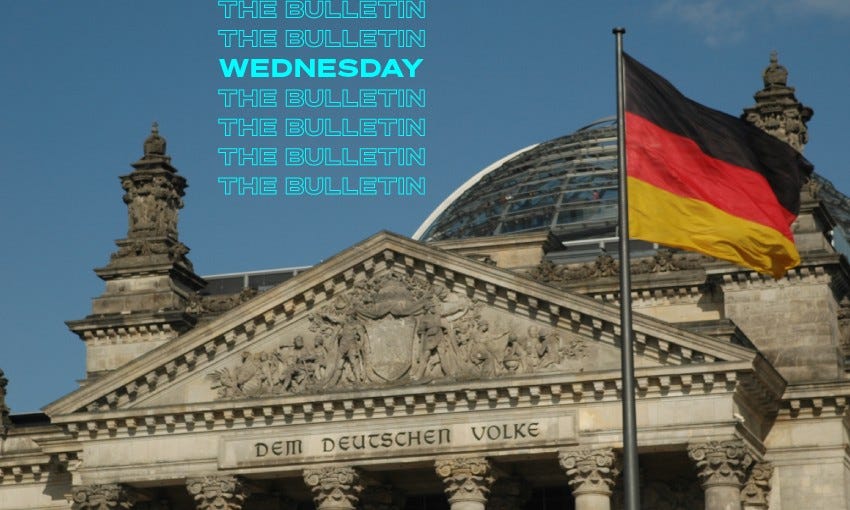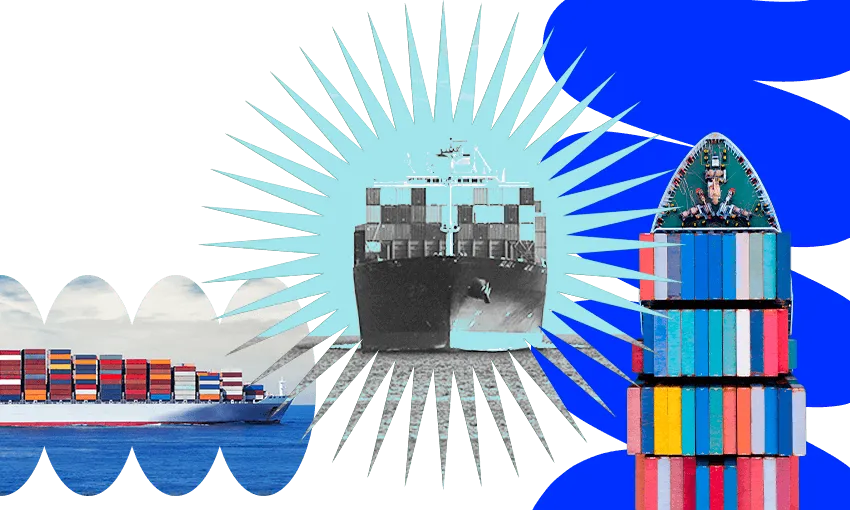Europe’s Covid wave has lessons for NZ
The continent is facing dark days as winter approaches and the pandemic’s fourth wave is worse than any before it
Mōrena and welcome to The Bulletin for Wednesday, November 24, by Justin Giovannetti. Presented in partnership with Z Energy.
In today’s edition: Confusion over how vaccine passes will work; Kāinga Ora outbidding private developers; Tamaki granted bail again; but first, Europe’s Covid surge.
Germany, Europe’s largest economy, is considering tough new Covid-19 rules (Herman/Flickr)
Europe is once again the centre of the global pandemic. Al Jazeera reports the German health minister issued an unwelcome prediction yesterday, declaring that everyone in his country will be “vaccinated, cured or dead” by the end of winter. Germany’s outgoing chancellor said the pandemic is now at its worst ebb. A fourth wave is sweeping across the continent, with Austria back in lockdown, the Dutch facing a partial lockdown and Germans warned to expect tougher Covid-19 restrictions soon. Christmas markets in hard-hit regions of Europe’s largest economy have already been ordered to close and cases are doubling every 12 days. While hospitals have begun to fill up again, street clashes between police and anti-lockdown protesters have rocked Belgium. It’s a rather grim prelude to Christmas.
What’s driving the fourth wave? Europe's situation isn’t yet a warning of New Zealand’s vaccinated future, but it is a sign that complacency and large unvaccinated populations aren’t a good mixture. While it’s difficult to draw clear conclusions for an entire continent, some things are clear, according to The Observer. Lower vaccine coverage across central and eastern Europe has fuelled infections, while immunity among people vaccinated early is now waning. The widespread relaxation of restrictions as case numbers fell over the summer, with masking and distancing requirements eased, is also seen as a factor.
Governments are now watching Austria to see if its lockdown works. Vaccines are preventing deaths, but most governments are now concluding that more restrictions are needed, especially over the colder months of the year. As the BBC reports, the World Health Organisation has warned that 500,000 deaths could be recorded in Europe by March and it has called for urgent action. In an echo of the earlier days of Covid, the US government advised against travel to Germany and Denmark yesterday (the latter’s move to drop all restrictions in September having backfired), citing the increasing rate of infections. Many other parts of Europe already face do-not-travel warnings.
How do we compare? Vaccination rates in New Zealand are similar to those in Western Europe. About 74% of the Netherlands and Italy are vaccinated, while France is now preparing for a fifth Covid wave at 69% and Germany faces tough restrictions at 67%. Austria is in full lockdown at 64%. In New Zealand, we’re sitting at around 68% of the total population vaccinated. If that number feels low after weeks of the Beehive loudly proclaiming that the country is one of the world’s most vaccinated, that’s because the ministry of health only reports figures here by eligible population – which provides a much higher figure. Yesterday, the ministry reported that 84% of New Zealand’s eligible population over the age of 12 was fully vaccinated.
Jacinda is watching Europe. In Australia, The Conversation has warned that the country needs to focus on boosters and ventilation if it wants to avoid a fourth wave in the new year. Across the Tasman, New Zealand is preparing to relax restrictions next week. The prime minister said in parliament yesterday that Europe serves as a warning of what could happen after the summer if restrictions are relaxed too quickly:
“The [WHO] is warning about potentially half a million deaths in a region that has access to vaccinations in the same way we do. And, in parts of Europe, there are vaccination levels we would consider high that are moving into lockdown. We need to continue to listen to the best research and advice possible.”
If you like what you’re reading, we need your support. The Spinoff is doing our utmost to keep you updated on Covid-19 related news. Every dollar our members contribute directly funds our editorial team and is devoted to ensuring we do more. Click here to learn how you can support the team today.
More questions than answers as mandatory use of vaccine passes nears. As Stuff reports, the most basic question about how vaccine passes will be used has led to a disagreement between cabinet and the Ministry of Health. The prime minister and Covid-19 minister Chris Hipkins said yesterday that businesses don’t actually need to scan the passes, a quick look is enough. They said looking at every pass would be impractical. However, the ministry has said scanning every pass will be necessary. Seeking a compromise, Hipkins said businesses might just need to scan a certain quota every day.
A last minute job. The government’s decision to pass legislation for vaccinations and the traffic light system this week, skipping most debate under urgency, has been called a “constitutional disgrace” by experts, according to the NZ Herald.
The Covid numbers: A person in their 50s died of Covid-19 yesterday. There are 88 cases in hospital and 6 in ICU/HDU. There have been 7,268 cases in the delta outbreak. 196 new community cases were reported in Auckland yesterday, 11 in Waikato, 4 in Northland, 2 in Lakes DHB, 1 in Bay of Plenty and 1 in Palmerston North. 15,224 people were vaccinated on Monday.
The Spinoff’s Covid data tracker has the latest figures.
Kāinga Ora isn’t adding to the country’s housing stock, developer contends. One News reports that Chris Meehan, the director of Winton property, says millions in taxpayer cash is being spent by the housing agency to outbid developers in the private market for new homes. The government has confirmed Meehan’s story that it is outbidding developers, but says it doesn’t pay 5% over valuation.
Part of Meehan’s frustration might come from a move by Kāinga Ora to block a proposed 5,000 house development in Auckland that he’d sought a speedy consent for. As Stuff reports, the development would be solar-powered and walkable. He called the decision “bafflingly contradictory”.
Brian and Hannah Tamaki granted bail after another arrest. The Destiny church leader has a strict new bail condition that he not attend the Auckland Domain after he spoke at a protest on Saturday. As Newshub reports, the two were summoned to Auckland’s central police station yesterday. Tamaki has been in court three times in recent months after attending protests and a judge has warned him, again, not to violate the Covid-19 act. Tamaki told a crowd outside the station that he was “basically innocent.”
KiwiRail workers to strike for two days in December, first stoppage since 1994. The workers want an 8% pay increase and will stop rail traffic on December 16 and 17, according to Stuff. The Interislander rail ferry and Wellington’s rail transit will also be impacted. The union representing the rail workers said they became essential and worked through Covid-19 while it was KiwiRail bosses who were granted large bonuses last year.
Barry Soper and his love of al fresco dining. Madeleine Chapman has written for The Spinoff about the veteran political editor’s questions to the prime minister over the past month. It culminated in a somewhat acrimonious exchange at Monday afternoon’s press conference where Soper really needed to ask one more question, after the three he’d already asked. Exclusive update for this newsletter: Soper did finally get to ask his question on Tuesday, unfortunately, it wasn’t (directly) about al fresco dining. He instead learned that the prime minister might go see hospitality businesses in Auckland tomorrow.
Got some feedback about The Bulletin, or anything in the news?
Get in touch with me at thebulletin@thespinoff.co.nz
Right now on The Spinoff: George Driver looks at what’s causing the global shipping crisis and when it might finally end. Julie Spray asks why we haven’t been including our children more in the pandemic response. Olga McAllister writes, amid the chatter of building denser housing, about growing up in a Soviet apartment block. Rachel Buchanan considers how a Pākehā can wrestle with his family history at Parihaka. Charlotte Muru-Lanning has tips on what to do when your lingerie gets cancelled, or more specifically, when you discover that the owners of the company who make your undies have terrible views.
For a longer read today, how Singapore’s tech-utopia could be turning into a nightmare. There’s an uncritical faith in technology in the city-state, according to Rest of World, as it’s viewed as a central part of the bargain that discipline will bring about prosperity. Some of it sounds incredible, but there’s also a darker side, with over 90,000 cameras watching the city, a number that’s going to double by the end of the decade. Here’s a sample:
Singapore is often rendered as an aspiring techno-utopia. In World Economic Forum videos, in-flight magazines and its own pliant state-backed media, it offers a soft-focus science fiction backdrop where driverless buses ply routes between beach clubs and tech hubs, where robot dogs enforce social distancing and flying taxis flit between glass-fronted public housing overflowing with lush “sky gardens.”
How curling’s Olympic trials are a display of discomfort for fans and players alike. When some of the world’s best curlers get together every four years, they pack their brooms, bring along their rocks and then chaos follows. As Sports Illustrated writes, it can be “eerie, disquieting, often jarring and downright horrifying experience for viewers to watch”. Athletes crumble, teams that have a 99.5% chance of winning end up losing, and the tension, good god, the tension. It’s like a game of chess on ice, except you’re not sure where your pieces will land and you’re encouraged to yell.
That's it for The Bulletin. If you want to support the work we do at The Spinoff, please check out our membership programme.







